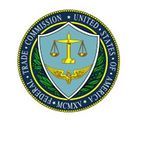Federal Trade Commission: Difference between revisions
No edit summary |
|||
| Line 26: | Line 26: | ||
==History== | ==History== | ||
FTC was created after the enactment of the Federal Trade Commission Act which was signed by former United States President Woodrow Wilson on September 26, 1914. FTC started its operations as an independent federal agency on March 16, 1915. The agency assumed the responsibilities of the Department of Commerce Bureau of Corporation, which was created during the administration of former President Theodore Roosevelt in 1903. The first commissioners of the FTC were Joseph Davies, Edward Hurley, and William Harris, and Progressives Will Parry and | FTC was created after the enactment of the Federal Trade Commission Act which was signed by former United States President Woodrow Wilson on September 26, 1914. FTC started its operations as an independent federal agency on March 16, 1915. The agency assumed the responsibilities of the Department of Commerce Bureau of Corporation, which was created during the administration of former President Theodore Roosevelt in 1903. The first commissioners of the FTC were Joseph Davies, Edward Hurley, and William Harris, and Progressives Will Parry and | ||
George Rublee. Davies was elected Chairman of the FTC.<ref>[http://www.ftc.gov/ftc/history/docs/90thAnniv_Program.pdf A Brief History of the Federal Trade Commission]</ref> <ref>[http://www.ftc.gov/os/minutes/mar-apr1915.pdf Meeting of Federal Trade Commission, March 16, 1915]</ref> | George Rublee. Davies was elected Chairman of the FTC.<ref>[http://www.ftc.gov/ftc/history/docs/90thAnniv_Program.pdf A Brief History of the Federal Trade Commission]</ref> <ref>[http://www.ftc.gov/os/minutes/mar-apr1915.pdf Meeting of Federal Trade Commission, March 16, 1915]</ref> | ||
==Powers of the FTC== | |||
The FTC has the authority to gather information, publish reports and conduct investigation and file administrative and antitrust cases against companies practicing unfair competitive business strategies under Section 5 of the Federal Trade Commission Act. The Commission can also implement the the Sherman Act which prohibits monopoly of businesses, the Clayton Act which prohibits mergers and acquisitions that will reduce competition leading to monopoly as well as other trade regulations.<ref>[http://www.ftc.gov/bc/antitrust/antitrust_laws.shtm The Antitrust Laws]</ref> | |||
==References== | ==References== | ||
Revision as of 23:50, 4 October 2011
 | |
| Type: | Government Agency |
| Industry: | Legal/Consumer Protection |
| Founded: | 1914 |
| Headquarters: | 600 Pennsylvania Avenue, N.W. |
| Country: | USA |
| Website: | www.ftc.gov |
| Facebook: | Federal Tade Commission |
| LinkedIn: | Federal Trade Commission |
| Twitter: | |
| Key People | |
| Jon Leibowitz, Chairman | |
The Federal Trade Commission (FTC) is a federal agency dedicated in protecting the rights of consumers and implements regulations against anti-competitive business practices. FTC has the authority to implement trade laws and regulations and to investigate business entities reported by consumers and are suspected to be conducting unfair trade practices. The agency's mission is carried out by Bureaus of Consumer Protection, Competition and Economics with assistance from the Office of General Counsel and seven regional offices.[1]
History
FTC was created after the enactment of the Federal Trade Commission Act which was signed by former United States President Woodrow Wilson on September 26, 1914. FTC started its operations as an independent federal agency on March 16, 1915. The agency assumed the responsibilities of the Department of Commerce Bureau of Corporation, which was created during the administration of former President Theodore Roosevelt in 1903. The first commissioners of the FTC were Joseph Davies, Edward Hurley, and William Harris, and Progressives Will Parry and George Rublee. Davies was elected Chairman of the FTC.[2] [3]
Powers of the FTC
The FTC has the authority to gather information, publish reports and conduct investigation and file administrative and antitrust cases against companies practicing unfair competitive business strategies under Section 5 of the Federal Trade Commission Act. The Commission can also implement the the Sherman Act which prohibits monopoly of businesses, the Clayton Act which prohibits mergers and acquisitions that will reduce competition leading to monopoly as well as other trade regulations.[4]

